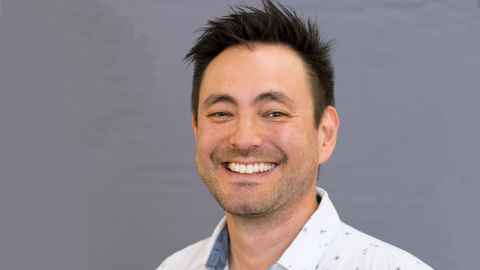Take 10 with... Ant Poole
Professor Ant Poole, from the School of Biological Sciences, gives us 10 minutes of his time to discuss his research about the evolutionary origins of DNA.

1. Describe your research topic to us in 10 words or less.
Testing the origins of molecular systems by experimentally evolving them.
2. Now explain it in everyday terms!
Our main project is to understand the evolutionary origins of DNA.
3. Describe some of your day-to-day research activities.
Coming up with the next big project, trying to secure funding and opportunities for my team, troubleshooting experiments, and living vicariously through their hard-won progress in the lab!
4. What do you enjoy most about your research?
I enjoy trying to work out how genomes and molecules evolve, and I enjoy helping younger scientists to become successful scientists.
5. Tell us something that has surprised you in the course of your research.
I was surprised how excited and happy I was when one of my PhD students was able to test and reject a hypothesis I developed earlier in my career. The student wasn’t too sure how I would react to their results, but their analysis was correct and one key way we make progress in science is slaying ‘beautiful’ hypotheses with ‘ugly’ facts!
6. How have you approached any challenges you’ve faced in your research?
Sometimes with confidence, sometimes with caution, sometimes with trepidation!
7. What questions have emerged as a result?
That’s a tricky one! In science it always seems that research only opens the door to more questions.
8. What kind of impact do you hope your research will have?
The question of how life evolved is one of those questions that we all ponder at some point. If I can make some contribution to that grand human endeavour, I’d be very glad. Excitingly, some of that seemingly esoteric work is starting to throw up opportunities to apply our basic research to very applied problems that society faces. If any of those avenues come good, that would be fantastic.
9. If you collaborate across the faculty or University, who do you work with and how does it benefit your research?
The collaboration I’ve been most excited by is with several members of the Philosophy Department. I have learned a lot from that interaction and am reminded that we often end up overspecialising!
10. What one piece of advice would you give your younger, less experienced research self?
Running a lab is hard - it’s never too early to begin reading management books!